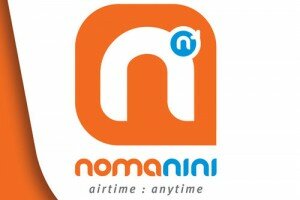
Speaking at the Scale Conference in Cape Town today, Dale Humby, chief technical officer of Nomanini, spoke of the importance of transforming the way airtime is purchased in Africa.
The company’s terminals and technology were developed to operate mostly within informal markets.
"Nomanini's goal is to replace scratch cards in Africa and do this throughout the continent," said Humby.
Humby added there are approximately 700 million mobile subscribers in Africa, which will grow to one billion by 2015.
Furthermore Humby said on average African mobile subscribers spend US$85 per annum on mobile services such as airtime, which translates to approximately US$60 billion.
"We hope to capture about 10 per cent of that market within three years," said Humby, adding that to keep up with the demand, the company has to manufacture and deploy "over half a million terminals across 54 countries and 250 mobile networks that are smaller than Cell C".
He added: "70 percent of airtime sold in Africa is still sold on scratchcards, even on paper. One fifth of the country's [Kenya] GDP moves through M-Pesa.
“We live in a physical world and phone to phone airtime transfers are still too slow. Scratch cards are easy to use, are fast to transact and are trustworthy."
However, Humby said there is also a downside to scratch cards, which include the complex procedures of screen printing onto plastic, unique pins having to be digitally printed as well as the application of the scratch-off wax.
Another downside are all the costs involved from manufacture to transportation.
"Our system wirelessly and cheaply delivers airtime right into the terminals... It's got a simple user interface," Humby said, adding that the terminal prints instantly and so is more readily useable than a scratchcard.
Nomanini's POS terminal works well for the informal market, particularly in the rural areas of Africa. Humby then touched on technical details pertaining to the process and functionality of the POS device.
"One of my core philosophies is done isn't done until its operating in the field," he said, who added Nomanini is working towards being able to upgrade the machines in the field so their existing customers are able to benefit from new features in the long run.
Humby said Nomanini includes "traditional business roles such as product management, business analysis, business development, marketing, and possibly even finance."
He said further these aspects of delivering value to their customers "has allowed our team to influence the culture of our organisation from the inside out".
"Everyone, not just engineers are focussed on delivering a world-class product to our customers.
“It is this model of continuous delivery that is enabling us to scale hundreds of thousands of terminals that we can manufacture, roll out and [give] support across the vastly different cultures and geographies of Africa."





















































